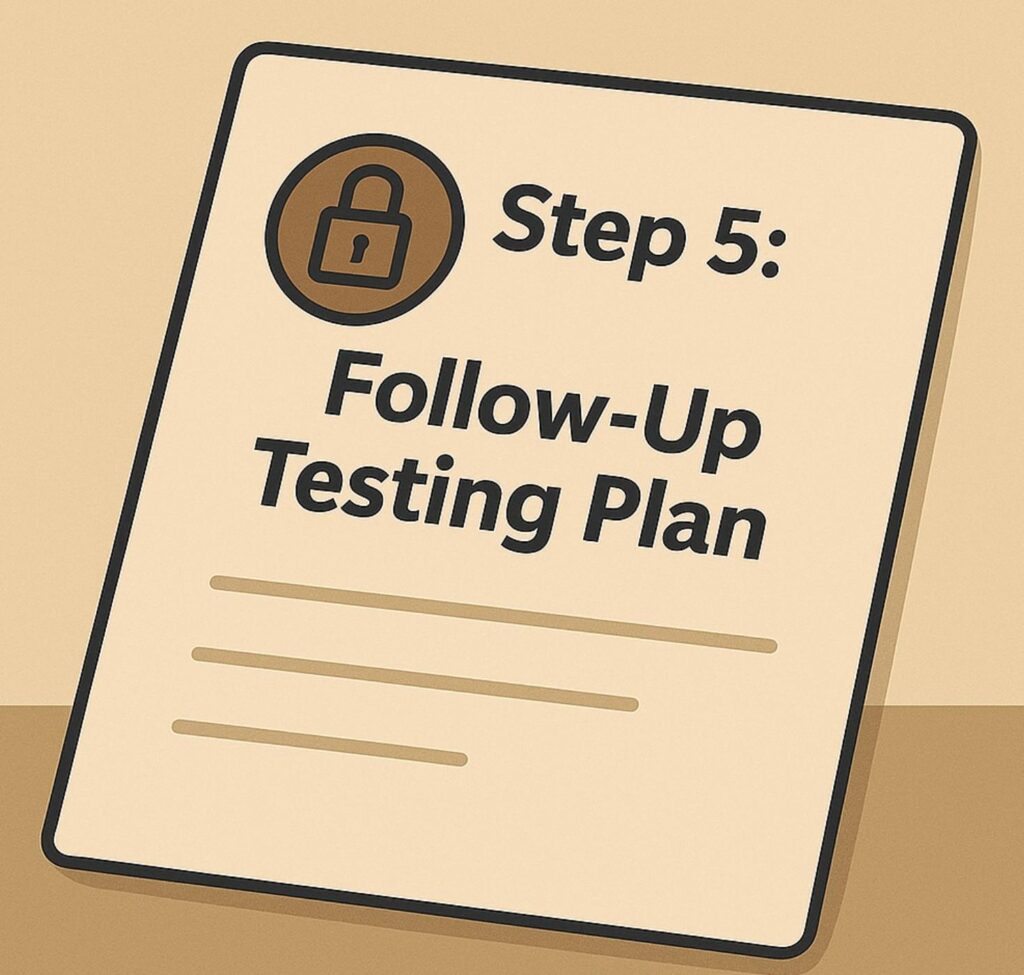US DOT Approved
SAP Evaluations

The SAP evaluation package includes a comprehensive assessment and guidance process to help you return to safety-sensitive work after a DOT violation. Services include the initial video evaluation, a written treatment or education recommendation plan, referral resources to qualified programs, coordination and documentation of completion, the required follow-up evaluation to verify successful compliance, and submission of all necessary reports to the employer or consortium/third-party administrator in accordance with federal regulations. This complete return-to-duty service is offered at a fair, flat-rate fee of $425.
Fairly Priced
US DOT APPROVED SAP EVALUATION
$425 Flat - Honest and Transparent Pricing
What to Expect
Step 1: SAP Evaluation
You will meet with a Substance Abuse Professional (SAP) by secure video.The SAP reviews your history, test results, and substance use patterns to decide what kind of education or treatment you need.
This assessment helps create a plan for you to return to work safely.
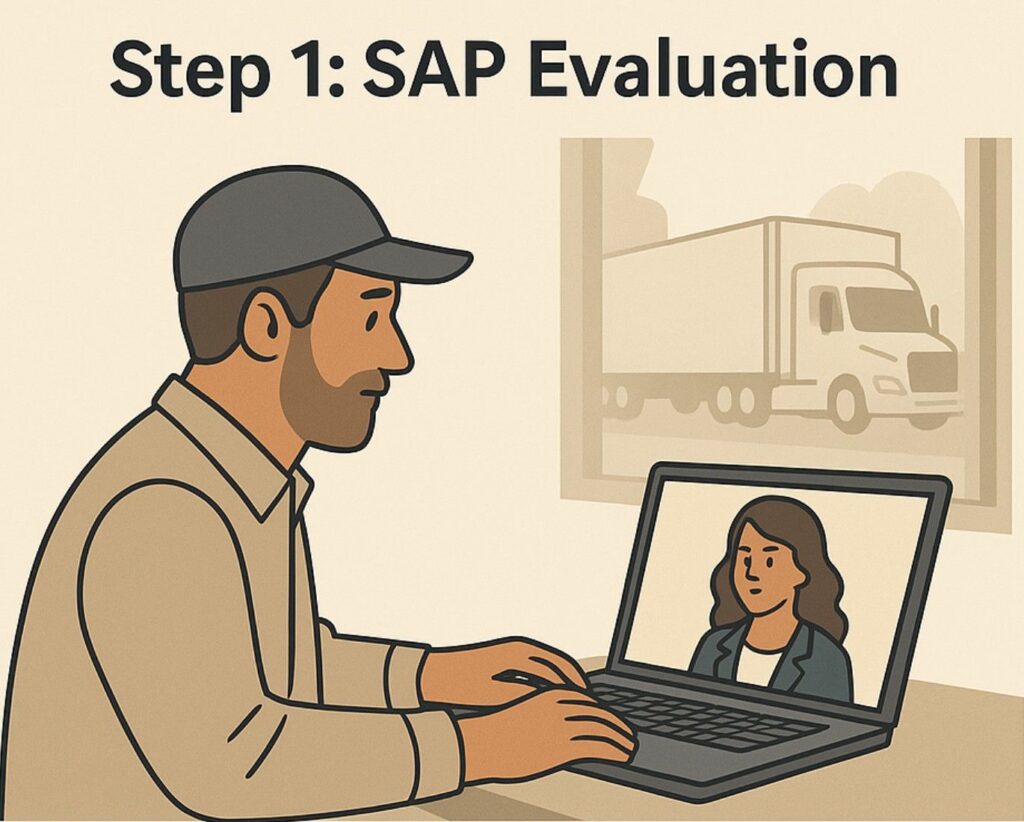
Step 2: Education or Treatment
The SAP will recommend one or more of the following, depending on your needs:
Alcohol or drug education programs
Support groups such as AA or NA
Inpatient or residential care
Counseling or Outpatient Treatment
You must complete the recommended program before moving forward.
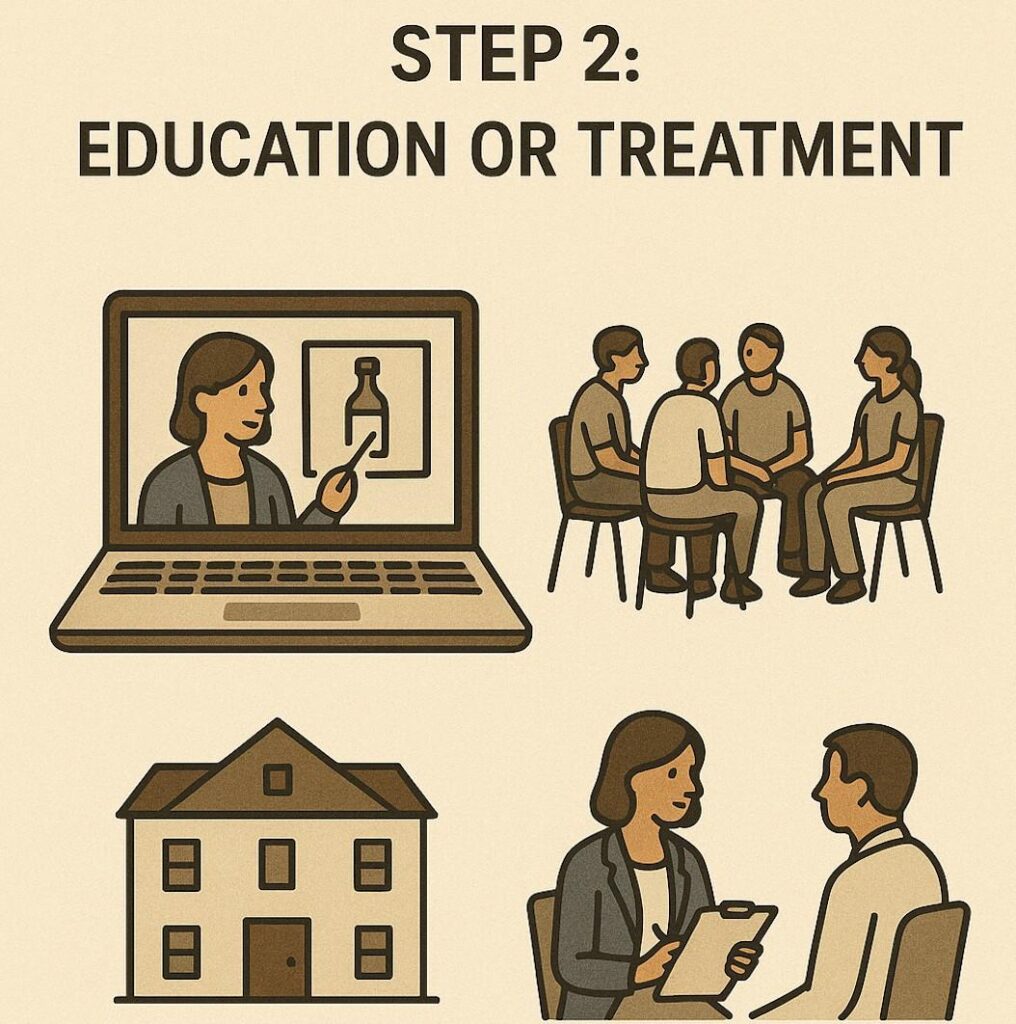
Step 3: Follow-Up SAP Evaluation
After completing the program, you will meet again with the SAP again remotely
The SAP checks your progress and determines whether you’ve successfully followed the plan.
If you have not completed treatment or still show unresolved issues, more time or additional steps may be required.
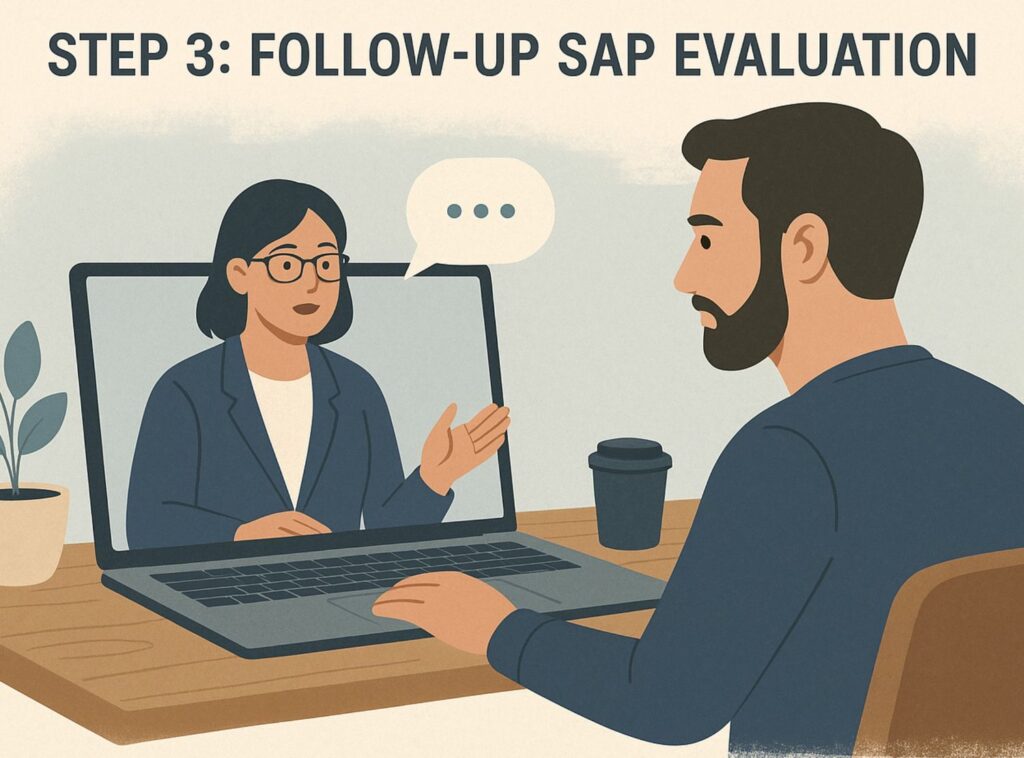
Step 4: Return-to-Duty Test
Once the SAP confirms successful compliance, your employer can schedule a Return-to-Duty drug and/or alcohol test.
You must have a negative test result (and for alcohol, less than 0.02 BAC) before performing safety-sensitive work again.
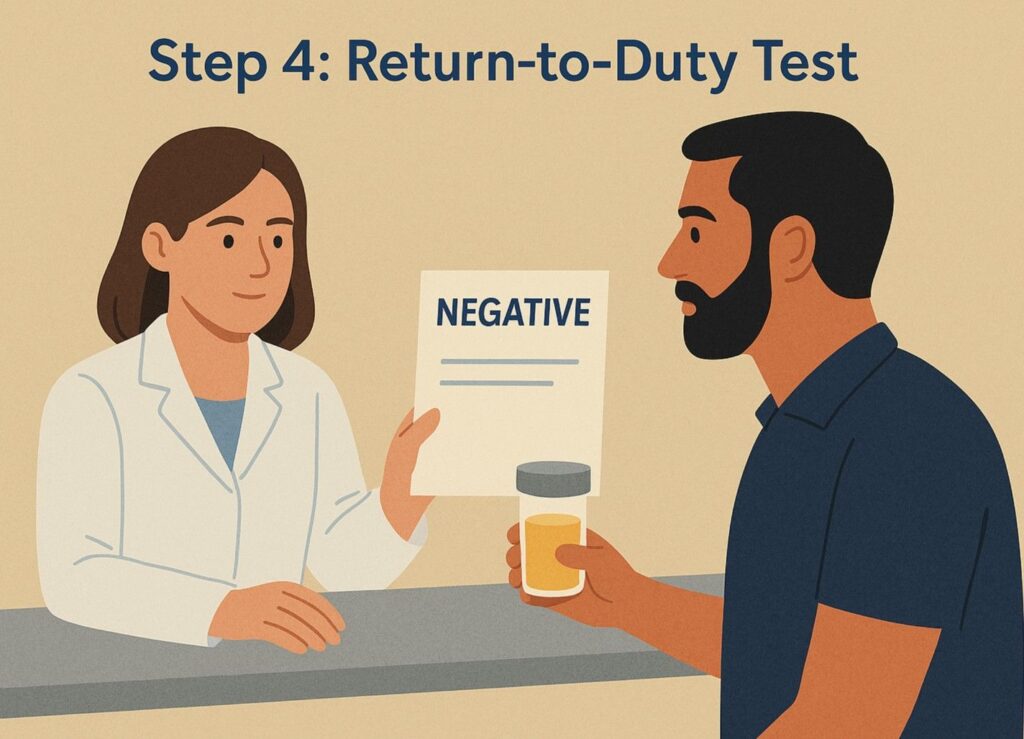
Step 5: Follow-Up Testing Plan
The SAP designs a personal follow-up testing schedule.
This plan must include at least six unannounced tests in the first 12 months, and it may continue for up to five years.
The employer, not the employee, controls when tests happen; you cannot legally be told the schedule.
